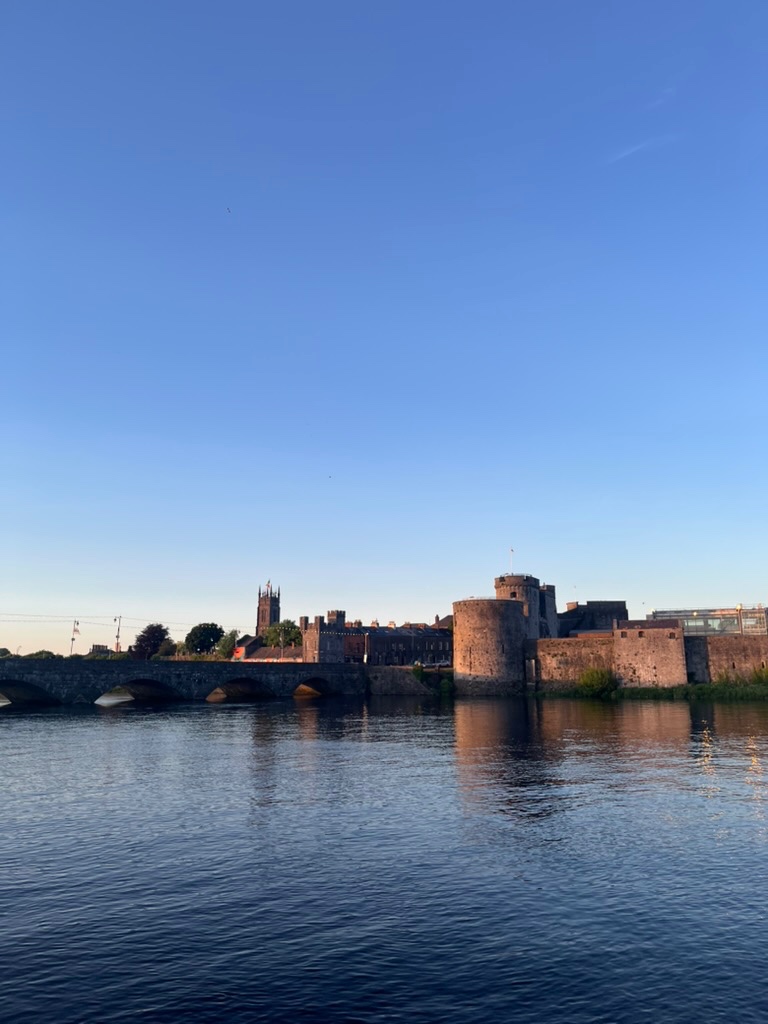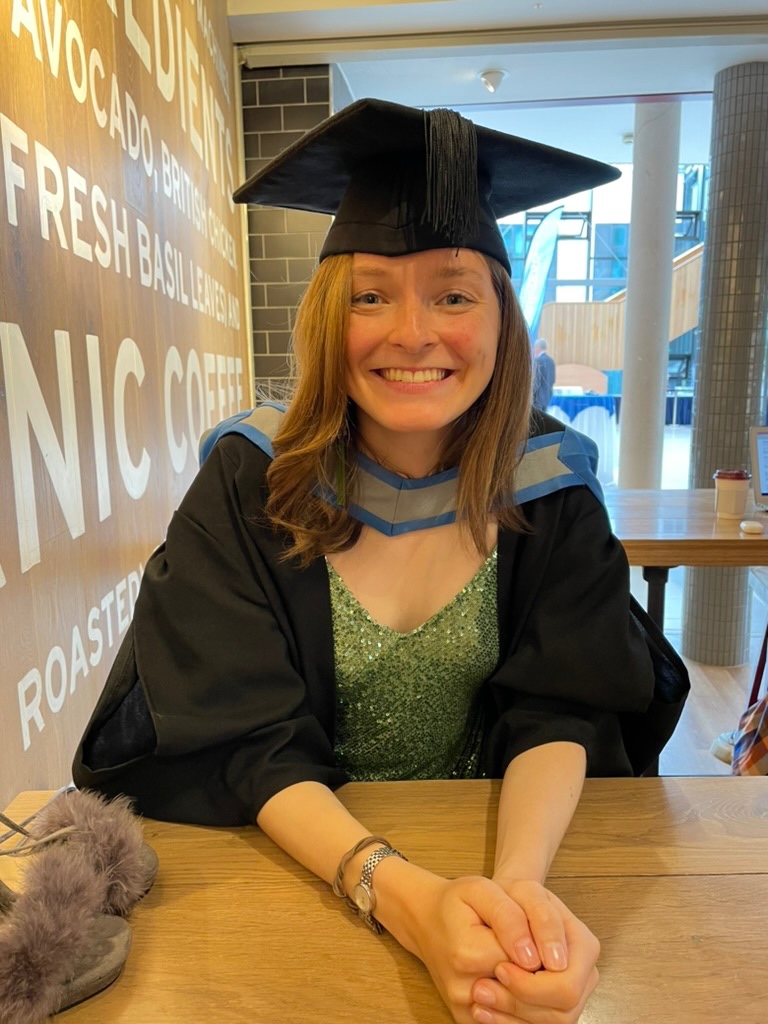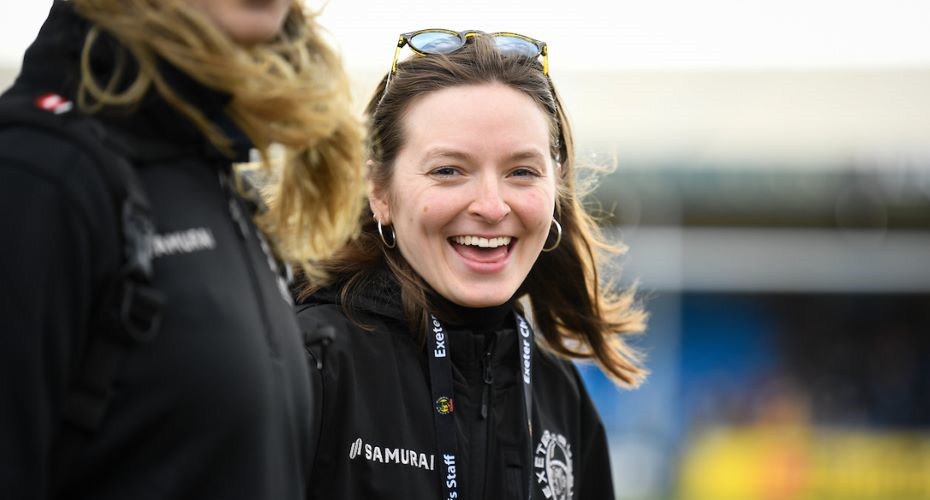To all University of Exeter prospective students!
My name is Olivia and I graduated from the University of Exeter with a 2:1 in French and Spanish in 2021. I grew up just northwest of London in a typical English village, and my degree, jobs and the friends I have made since then have taken me all over the world.
Exeter is such a wonderful place to live and work. I feel very privileged to have spent so many years of my late teens and early twenties there. It is a hidden gem really that not many people know about. The University itself is academically excellent: I found my degree intellectually challenging, but I am proud to say I have a degree from Exeter. It’s got a lovely campus and the city is gorgeous and vibrant – it’s not a hectic metropolis, but that is what gives it such a nice feel. It’s near to lots of nature that is accessible by public transport or by car, which makes a difference if you want a change of scene! I was into my sport as well, and so it was great that alongside my degree I was able to play hockey to a pretty high level. Essentially, when choosing universities you have to think about what is important to you. But Exeter suited me down to the ground and I wouldn’t have picked anywhere else.
Because I graduated in 2021, my degree was slightly hampered by the Covid-19 pandemic. My year abroad was cut short in the March, and my final year was a difficult one. With the world so shut down, it wasn’t a typical university experience. Until then, I definitely made the most of it!
An overview of my career since graduating
I currently work as a Communications Executive with Munster Rugby Club in Limerick, Ireland, having previously spent just over two seasons with the Exeter Chiefs on the University’s Graduate Business Partnership (GBP) scheme, and before that some time working in France as a British Council English teacher. My current responsibilities include social media management and content creation, match day media, liaising with players, writing a brand and style guide for the club, designing graphics and more (*insert long list). In summary, I am a “jack of all trades” in the sports media industry!

Choosing Exeter and starting my course
I looked at a few different universities when I was in Sixth Form. I went up to Edinburgh, down to Southampton, and across to Leicester. But it was Exeter that hooked me – the campus, the sports facilities, its proximity to the centre of town, and the fact that it was close to the coast! And of course, the deciding factor was that there was a Pret-a-Manger right next to library…
When I visited Exeter on an Open Day I actually looked into studying History or Geography, and it wasn’t until the last minute that I was encouraged by my teachers (and mother) to apply for modern languages. At the time, I hadn’t thought much beyond university. I liked sports, wanted to investigate new hobbies, and I was looking forward to an academic challenge, and Exeter offered all those things in abundance.
I didn’t know much about uni, or how it worked, which was made very clear when I arrived in September 2017, as I had nothing in my timetable. It turns out I never actually selected any of my modules! I applied for a BA in French and finished with joint honours, because in my first week I accidentally chose a load of beginner’s Spanish modules, not realising I put myself on the joint honours course. Thank goodness I did – I spent a wonderful year in Madrid and left fluent in two languages instead of of one!
How I’ve used my degree since graduating
In my first year out of university, I wanted to use the languages I’d studied in my degree. I didn’t get the full year of my year abroad because of the pandemic, and so I was desperate to get back abroad. Getting a job teaching English through the British Council was the easiest way to do that, so I ended up teaching English to Sixth Form students in Villefranche-sur-Saone in the Auvergne-Rhone-Alpes region. I wanted to get my French really fluent, and having a good basis from my degree really helped me. I also lived with a Honduran girl, so I spoke Spanish at home, English at work and French for leisure!
In my current job, I don’t specifically use the languages I studied, although they are an incredibly useful skill to have when I do. We had an Argentinian player join us at the Chiefs, and I was able to make him feel at home and get him involved in media activities by speaking to him in Spanish, as his level of English wasn’t very strong.

We still keep in touch now, and I have seen him at other matches, both home and abroad. I also recently went to Bordeaux, for Munster’s Champions Cup quarter-final, and my French was a lifesaver, helping to organise food in the hotel for the players, finding out where to go in the stadium, and just building a relationship with my opposition media representative from the Bordeaux team.
I find that two of the most useful transferrable skills I gained from university have been the ability to perform under pressure and to deliver strong arguments. I always made a real effort to go to my speaking and grammar classes, because I knew I’d find them difficult, and the only way I would improve was to put myself in those uncomfortable situations. This has been hugely valuable in my career to date and means that I am always growing and pushing myself. That definitely stems from my degree and the discipline and hard work I had to put in to learning languages.
My year abroad (and my advice about doing one)
Taking a year abroad is a fantastic experience, but my biggest advice is that it will be what you make it. I knew I didn’t want to study, so I had to find a job. I ended up getting a job teaching English at a Spanish school through the British Council (much like the previous British Council job I mentioned, which I got in France after I graduated). British Council is probably the most accessible way to get a work placement. You don’t need any teaching experience at all, and you’re paid relatively well for the number of hours you do. The only slight downside is that you can’t choose the school you get: you can put your preferences on location and student age-level, but the allocation can be a little bit random. So, the best way to be fulfilled is to go with an open mind.
I spent my year abroad in Madrid, a capital city where everything was happening, I didn’t speak much Spanish and I didn’t particularly warm to my colleagues, and the kids I was teaching English to were also pre-school age, which I found tricky. But I made friends there who I am still in contact with and played lots of hockey!
Even though my year abroad was a little tough, I’m really grateful that I found out about British Council through my degree, because I loved the job I got in rural France after I graduated. My colleagues were fantastic, I got really involved in my job, I travelled loads, and my standard of French went through the roof because I was speaking it every day at great length. I even signed up to Zumba classes with a bunch of South American ladies to do something different and speak Spanish, in France! I just said yes to everything.
Extracurricular activities, and how they’ve benefited my career
While at Exeter, I got stuck into a huge array of clubs and societies; I made the mistake of joining way too many initially and then refined them as I got a feel for what I enjoyed.
I coxed with the Boat Club, played Hockey for the 3s, 4s and 5s teams, went on several camping trips with Expedition Society, and spent a fantastic few years at the student radio station, XpressionFM where I was the first female Head of Sport. I even had my own show in French and Spanish!
The radio station was particularly good for my career and really made me realise I had a passion for media, in all forms, in sports and communications. When I first left university, I was desperate to join the military. I had applied to the Navy first, and failed the initial application, and then tried the Army, and got through but ended up withdrawing. At the time I applied to the Army, I was in my second year of my job at the Exeter Chiefs, and realised that actually, I quite liked it. That job was originally just a place holder, while I applied to the Forces, but it turned out that when I thought about it, and thought about what I had enjoyed and got involved in at uni, I realised that sport and media were two things I could potentially make a career in.

Career support – to graduation and beyond
The Career Zone were very helpful when I left university. I knew I wanted to go to France for a bit straight after graduation, and it was during that year I applied for the Exeter Chiefs Media job via the Graduate Business Partnership scheme. The scheme itself is a great way to get your foot in the door in a particular industry. Usually, they run on a one-year contract, but the Chiefs wanted me to stay another year, so after a few tweaks to make the job more my own, the Career Zone were able to work with the club to extend my contract for a second year. The scheme feels like a very win-win opportunity: not only did I start my career off, but the Chiefs got someone who was enthusiastic, creative and knowledgeable and who completely revamped their social media. Also, if I hadn’t spent my two years in the role, perhaps I wouldn’t have ended up here in Limerick working for one of the biggest and most iconic rugby clubs in the world.
When I look back at what I have achieved in my career over the last few years I am genuinely surprised, and very proud, and without Exeter and the experiences I had there, I wouldn’t be where I am today.

